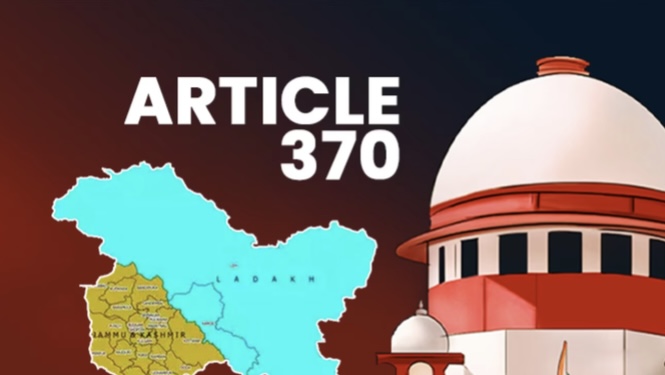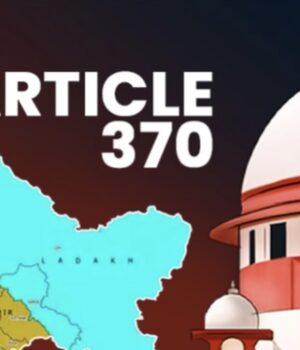In a landmark judgment on the Article 370 case, the Supreme Court emphatically declared that executive notifications cannot alter substantive provisions of the Constitution. The Court clarified that amendments to constitutional provisions must strictly follow the procedure outlined in Article 368. Specifically, the process involves passing an amendment bill in Parliament with the required majority.
The Constitution Bench invalidated a portion of President’s notification (Constitution Order 272), which added a clause to Article 367. This clause substituted the “Constituent Assembly of Jammu and Kashmir” with the “Legislative Assembly of Jammu and Kashmir” and replaced the “Government of J&K” with the “Governor of J&K.” These changes paved the way for the subsequent Constitution Order, CO 273, declaring Article 370 inoperative without the J&K Constituent Assembly’s recommendation, which had been dissolved in 1957.
Article 367, containing interpretation clauses for certain terms in the Constitution, underwent changes through Presidential notification CO 272. The Court disapproved of these changes, emphasizing their substantive impact on Article 370. By shifting the recommending body for abrogating Article 370 from the J&K Constituent Assembly to the J&K Legislative Assembly, the alterations effectively amounted to an amendment to Article 370.
Chief Justice DY Chandrachud, in the judgment, rejected this indirect method of amendment. He emphasized that while an ‘interpretation’ clause can define terms, it cannot be used to amend a provision without following the prescribed amendment procedure. The judgment cautioned against the disastrous consequences of allowing amendments through circumvention, highlighting the risk of rendering various constitutional provisions susceptible to unauthorized changes.
The Court illustrated the danger with a hypothetical scenario involving Articles 243D, 243T, 330, and 332, which prescribe reservations for Scheduled Castes. The judgment underscored that evading the stipulated amendment procedure could potentially undermine these provisions, impacting the reservation mandates without proper adherence to Article 368.
Despite invalidating changes to Article 367 through CO 272, the Court upheld the repeal of J&K’s special status. It concluded that the President did not need the J&K Constituent Assembly’s recommendation to declare Article 370 inoperative, thereby affirming the validity of CO 273.











